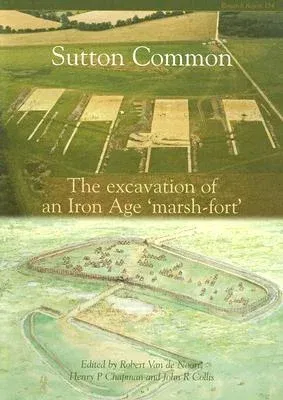Robert Van de Noort
(Author)Sutton Common: The Excavation of an Iron Age 'Marsh-Fort'Paperback, 31 December 2007

Qty
1
Turbo
Ships in 2 - 3 days
In Stock
Free Delivery
Cash on Delivery
15 Days
Free Returns
Secure Checkout

Part of Series
CBA Research Reports
Print Length
235 pages
Language
English
Publisher
Council for British Archaeology
Date Published
31 Dec 2007
ISBN-10
1902771702
ISBN-13
9781902771700
Description
Product Details
Book Format:
Paperback
Country of Origin:
GB
Date Published:
31 December 2007
Dimensions:
29.51 x
21.46 x
1.78 cm
ISBN-10:
1902771702
ISBN-13:
9781902771700
Language:
English
Location:
York
Pages:
235
Publisher:
Series:
Weight:
1111.3 gm